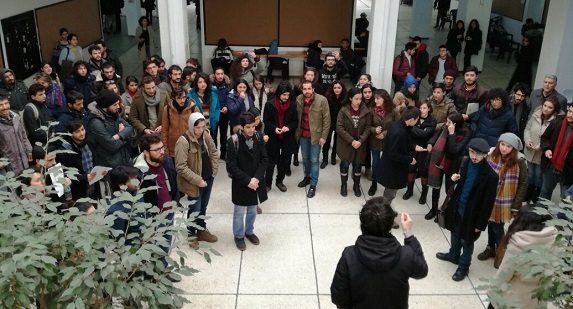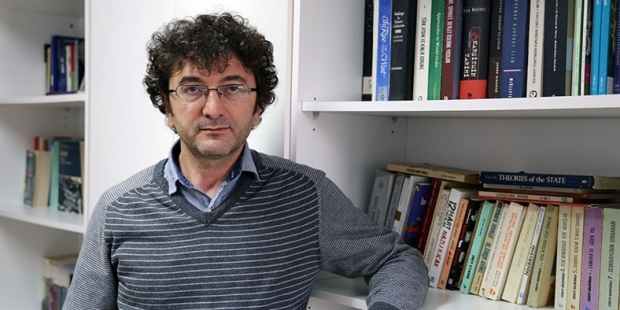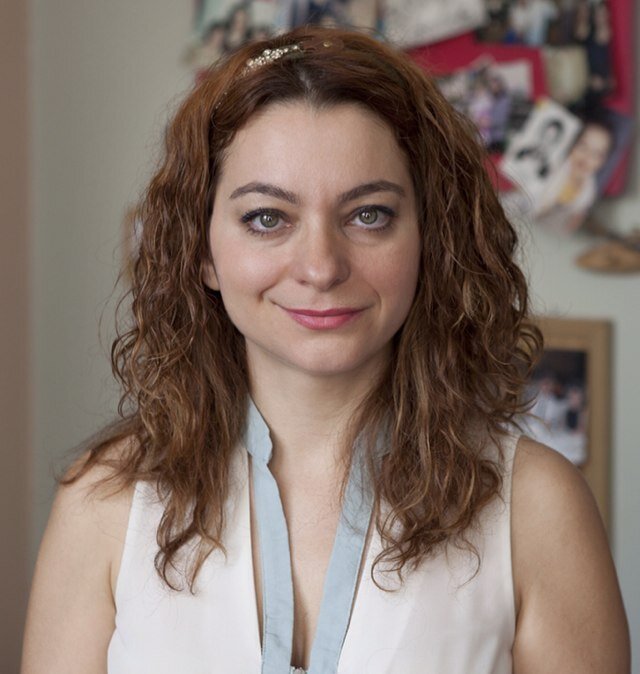12 Eylül'den sonra en ağır kıyım


686 numaralı KHK’yla kamu görevlisi toplam 4 bin 464 kişinin işine son verilirken görevden alınanlar arasında 350 akademisyen bulunuyor. 350 akademisyenden 150’i ‘Bu Suça Ortak Olmayacağız’ bildirisine imza atmıştı.
Ankara Üniversitesi’nden ihraç edilen akademisyenler arasında Ahmet Haşim Köse, Murat Sevinç, Pınar Ecevitoğlu, Gökçen Alpkaya, İlhan Uzgel de bulunuyor.
Marmara Üniversitesi’nde görevli Anayasa Profesörü İbrahim Kaboğlu da ihraç edilen isimler arasında yer alıyor. Listede bildiriyi imzaladığı için bir süre tutuklu kalan Yard. Doç. Meral Camcı da var. İhraç edilen akademisyenler arasında Nur Betül Çelik, Mine Gencel Bek, Funda Başaran Özdemir, Funda Şenol Cantek, Ülkü Doğanay da yer alıyor.
Barış imzacısı akademisyen Mine Gencel Bek, geçtiğimiz günlerde Ankara Üniversitesi İletişim Fakültesi’ndeki (İLEF) görevinden istifa ettiğini duyurmuştu. Bek, “Bizlere selam vermeyenlerin sayısı her gün artıyordu. Böyle bir ortamda fakültede bulunmam çok zorlaştı” ifadelerini kullanmıştı.
Marmara Üniversitesi’nden Yüksel Taşkın ve Baran Alp Uncu da ihraç edilen kişiler arasında.

Taşkın: “Demokratik alanlara öğrenciler için sahip çıkmak gerekiyor”
Son KHK’yla görevden uzaklaştırılan, Barış Bildiri imzacılarından Marmara Üniversitesi Siyasi Tarih Anabilim Dalı Başkanı Prof. Dr. Yüksel Taşkın, sürecin barış bildirisiyle ilgisi olmadığı, demokratik akademik kurumlara yönelik topyekün bir saldırı olduğu görüşünde: “Belli bir niteliği olan akademik kurumlarla o niteliğin yanına bile yaklaşamayan, böyle bir derdi de olmayan bir grup arasında bir gerginlik var. Şu anda oturmuş belli demokratik kültürü olan, yani İslamcı, milliyetçi öğrencinin de kendine yer bulabildiği üniversiteler var. Ama diğer tarafın üniversite zihniyetinde tek seslilik hakim. İki sistemin kapışmasında siyasi iktidarın da yardımını alarak demokratik kurumları tasfiye etme çabası görüyorum. ‘Milli üniversite’ diye bir kavram oluştu. Bazı üniversiteler ‘milli’ değil. Bu şu anlama geliyor: ‘Benim hiç bir akademik, evrensel iddiam yok. Ben ele geçirmek istiyorum, akademide kadrolaşmak istiyorum. Ama öbür taraf fazla nitelikli, onlarla yan yana duramıyorum, o zaman onu yok etmem lazım’ gibi basit bir mantık var maalesef.”
Yaşananların açık bir siyasi tasfiye olduğunu belirten Taşkın’a göre son KHK, ciddi tepki yaratma potansiyeline sahip: “Niyetler hiç bu kadar belirgin olmamıştı. Şimdiden hukuki mücadeleye başlamak gerekiyor. Böyle bir Türkiye’nin ne anlama geldiğini ‘Hayır’ kampanyasıyla anlatmak gerekiyor. Sabırlı olmak gerekiyor. Hukuk ve siyasal mücadeleden başka yol yok. Şimdiden hukuk mücadelesi başlatırsak olağan hukukta netice alacağımızı düşünüyorum.”
Taşkın, akademik darbelerden en çok gençlerin etkilendiğini de belirtiyor: “Bütün Türkiye, ama özellikle gençler çok fazla mağdur oluyor. Çünkü bahsettiğim demokratik kültürü olan üniversitelerde gençler en azından kendilerini ifade etme alanı bulabiliyorlardı. Bu kültürün zedelenmesi çok sakıncalı. Çok pesimist olmamak gerekiyor, öğrenciler bu tür bir çabayı hak ediyor çünkü. Bu alanlara onlar için sahip çıkmak gerekiyor.”

Doğanay: Haklı olduğumuzu biliyoruz
Ankara Üniversitesi’nde son ihraçlarla birlikte Barış Bildirisi’ne imza atmış akademisyen kalmadı. İletişim Fakültesi öğretim üyesi Prof. Dr. Ülkü Doğanay da onlardan biri. Doğanay, aynı zamanda fakültede Hrant Dink’in katledilmesinden sonra başlanan ayrımcılığa karşı dersleri de veren isimlerdendi. Doğanay, kendisine bir öğrencisinin gönderdiği mesajı okuyor: “Hocam, öğrenim hayatımda çok özel bir yere sahipsiniz ayrımcılığa karşı dersler dünya görüşümü değiştirdi. Sizin yeriniz ayrı olacak” Doğanay, bunu bilmenin kendisi için yeterli olduğunu söylüyor ve sözlerine şöyle devam ediyor: “Biz bu bildiriyi barış adına imzalamıştık. İmzamızın arkasında durduğumuz için bu bedeli ödettiler. Bu bedel hayatımızı çok ağır biçimde etkileyecek olsa da haklı olduğumuz biliyoruz. Dahası haklı olduğumuzu bilen çok sayıda öğrencimiz var. Derslerin verilemeyecek olmasının öğrencilerden başka kimsenin umurunda olduğunu sanmıyorum. Tabii ki rektör eliyle gitti ismimiz ama daha sonra kararnameye girmesi süreci nasıldır bilmiyorum. Eğitim öğretimin nasıl yürüyeceğine dair bir kaygılarının olduğunu düşünmüyorum. Bu hafta kayıt dönemi. Dün kaydını onayladığım öğrenciler vardı, bugüne bıraktıklarım onaylanamayacak.”


